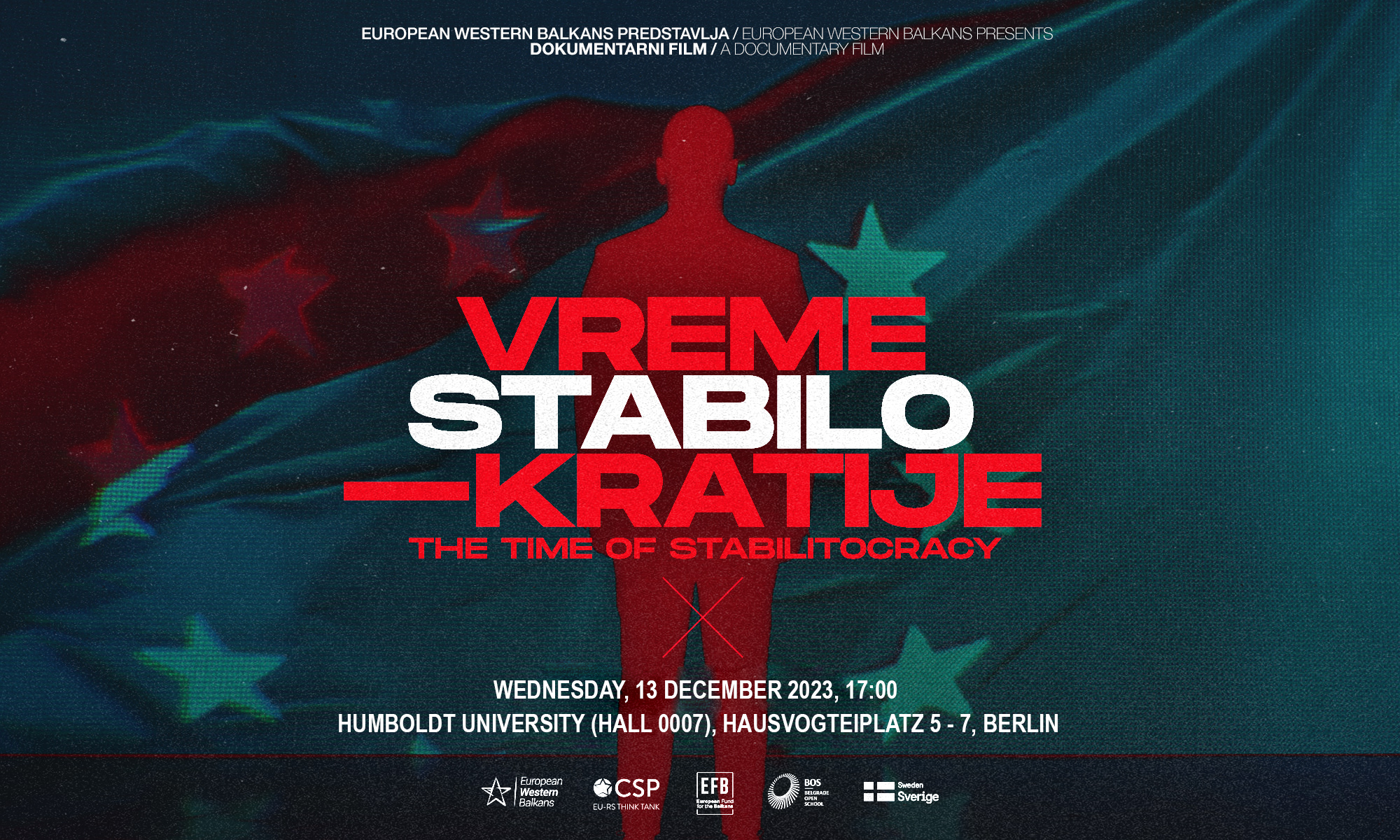
The documentary produced by the European Western Balkans, “The Time of Stabilitocracy” was screened at the Humboldt University in Berlin on on 13 December, 2023. The documentary was screened in partnership with the European Fund for the Balkans and the Balkans in Europe Policy Advisory Group, with Florian Bieber, Director of the Centre of Southeast European Studies of the University of Graz and coordinator of Balkans in Europe Policy Advisory Group (BiEPAG), Jovana Marović, BiEPAG Member and Former Deputy Prime Minister of Montenegro, as well as co-author of the documentary, Nikola Burazer as speakers.
The documentary “The Time of Stabilitocracy“, produced by European Western Balkans and Panorama Films, analyses the relation between EU integration and democratization in the Western Balkans, as well as the phenomenon of “stabilitocracy”, undemocratic rule with international support thanks to the promise of stability. The production of the documentary has been supported by the European Fund for the Balkans, Kingdom of Sweden, Belgrade Open School.
The special focus of the movie is on Montenegro under Milo Đukanović, North Macedonia under Nikola Gruevski and Serbia under Aleksandar Vučić. The documentary aims to explain how “stabilitocracies” were created, why they were supported or tolerated by the European Union, and how the enlargement deadlock can be broken and democracy supported in the Western Balkans.
The documentary “The Time of Stabilitocracy” premiered in Belgrade in December 2022, and has been broadcast on Serbian TV N1 throughout 2023. Earlier in December, it was also presented in Vienna and Graz.
You can watch it online at the following link.